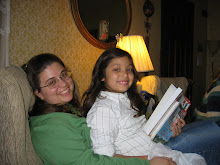Last Week, students were given a brown copy of this to have in their binders. FYI to parents. 3 Essential questions due tomorrow, 11/14. (A "big" question that requires reading the whole book to answer, but parts of the answer can be discovered during reading. Ex for a book on baseball: How has baseball changed over time?)
Independent Reading Project -- Non-fiction
Before reading, please identify 3 “essential questions” that you would like to explore while reading your book. These should be deep, “think and search” kinds of questions, not simple “right there” kinds of questions. For example, if you are reading a biography of Thomas Jefferson, a good question might be, “Why did Jefferson want to become president?” or “What kind of a person was Jefferson in his home life?” A bad question might be “What year did Jefferson become president?”
While reading, take notes on your three essential questions. You should do this by creating a three column chart with each question at the top of a column, then jotting down facts and information that help to answer the questions. Be sure to indicate the page number on which the information was found.
Also, while reading, build a glossary by identifying 20 words that are new to you as you read, or are key to understanding the topic your book is focused on. Give the page number the word is found on, and define it as it is used in the book.
After reading, choose and complete a project from the following list:
1. Illustrate a timeline of major events in your book. The timeline should be at least three feet long, and include a minimum of 8 major events, illustrated and explained in words. The timeline will be judged for informational accuracy, GUM and spelling, artistic quality, neatness, and depth of information.
2. Create and share with the class a PowerPoint demonstration of a minimum of 8 slides (not including title slide) exploring your essential questions and the answers you found as you read. The PowerPoint will be judged for informational accuracy, GUM and spelling, class presentation, artistic quality, and depth of information.
3. Design and “publish” an ABC book of terms, key ideas, and information related to your non-fiction book. For example, and ABC of oceans might have “W is for Whale,” and “P is for Plankton.” The book will be judged for informational accuracy, GUM and spelling, artistic quality, neatness, and depth of information.
4. Prepare and present a three minute speech giving key information about your topic. This could be pre-recorded in the form of a podcast or other electronic means. The speech / podcast will be judged for informational accuracy, vocal quality (inflection, tone, delivery), and depth of information.
Key dates to keep in mind and even post on your refrigerator:
Book chosen by: Nov 12
3 Essential questions recorded on a chart: Nov 14
First check of progress on notes and glossary: Nov 25
Second check of progress on notes and glossary: Dec 9
Project progress check (1/2 done): Jan 7
Projects due: Jan 14
This blog is for my students and their parents to access announcements, information, and homework assignments during the school year. The sidebar is an archive of posts going back a few years. Questions? Email me at awald@arsu.org.
